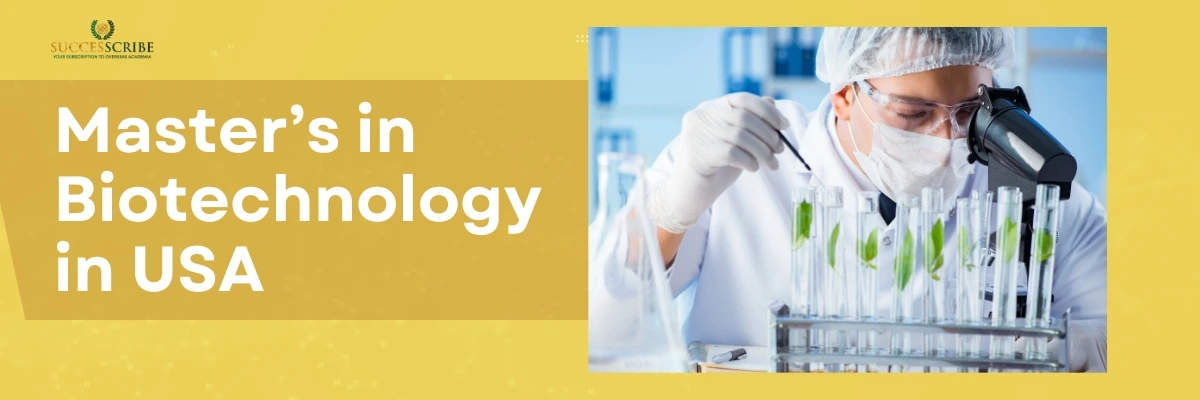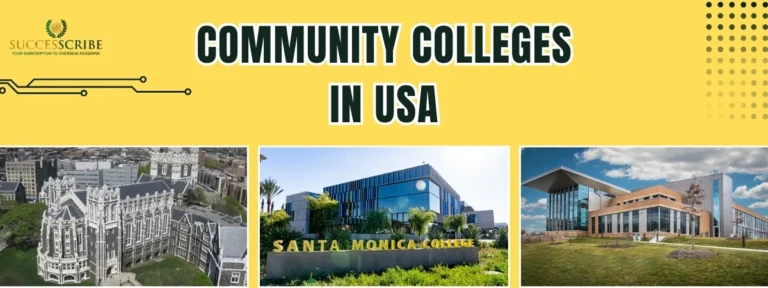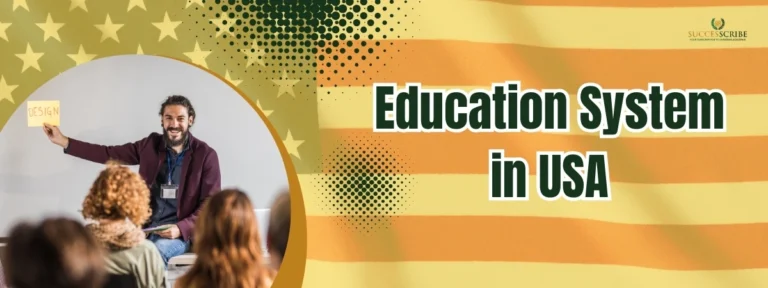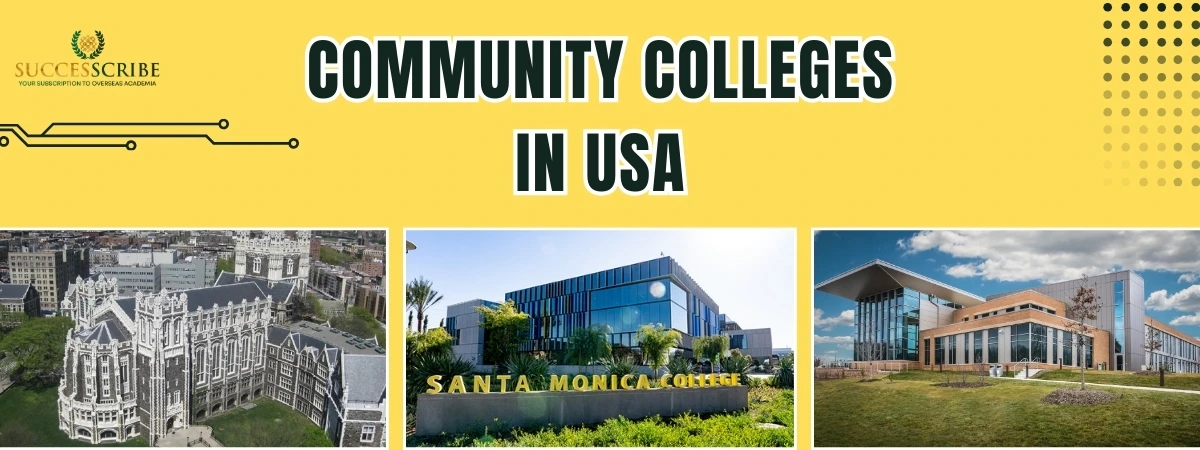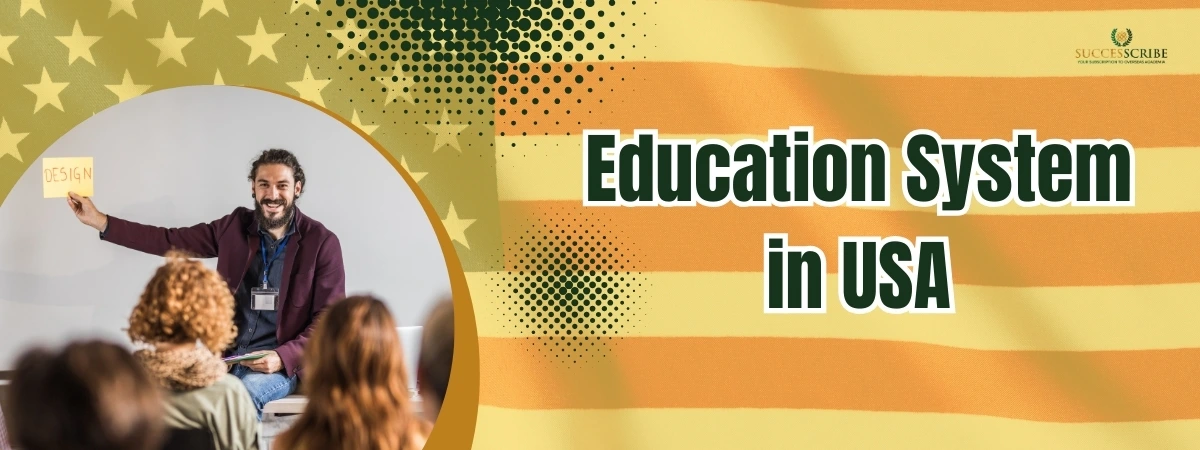Biotechnology is transforming the way we approach global challenges in healthcare, agriculture, environmental sustainability, and industrial development. As one of the most dynamic and innovative scientific disciplines, it blends biology with technology to create impactful solutions that shape the future. Pursuing a Masters in Biotechnology in USA not only opens the door to high-impact research and lucrative career opportunities but also positions graduates at the forefront of scientific innovation. This topic covers everything you need to know from top universities and more to help you make an informed decision about your academic and professional journey.
What is Biotechnology?
Biotechnology is an interdisciplinary field that merges biological sciences with technology and engineering to develop innovative products and processes for various industries. It has applications in healthcare (such as vaccine and drug development), agriculture (genetically modified crops), environmental conservation (bio-remediation), and industrial manufacturing (biofuels and enzymes).
As of 2024, the global biotechnology market is valued at approximately USD 1,220 billion and is projected to rise to USD 1,480 billion by 2026, driven by advancements in areas like CRISPR gene editing, personalized medicine, and sustainable agriculture.
Want to Study in Europe?
Start your journey with Successcribe’s free expert guidance
Book a Free Session NowAdvantages of Studying Masters in Biotechnology in USA

The USA offers unparalleled benefits for biotechnology students:
- World Leader in Biotech Innovation
The United States is home to several major biotechnology hubs such as Boston, San Francisco, and San Diego, and houses more than 60% of the world’s leading biotech companies including Genentech, Amgen, and Gilead Sciences.
- Prestigious Academic Institutions
The USA hosts 8 of the top 10 universities for biotechnology globally, offering students cutting-edge research opportunities and partnerships with leading industries.
- Ample Financial Support
International students pursuing biotechnology programs can access a wide range of scholarships and grants offered by universities, government bodies, and private organizations.
- Work Opportunities Post-Graduation
Biotechnology falls under the STEM category, allowing students to benefit from 3 years of Optional Practical Training (OPT) after graduation.
- Strong Career Prospects
According to the U.S. Bureau of Labor Statistics, employment for biomedical engineers and biochemists is expected to grow by 7% between 2022 and 2032, outpacing many other professions.
Suggested: Best states in USA for international students
Top 20 Universities for Masters in Biotechnology in USA

A comprehensive table listing top institutions such as Harvard, Stanford, MIT, Johns Hopkins, etc., along with program names, QS rankings, and average tuition fees per year.
| University | QS World Rank 2024 | Program Name | Avg Tuition (Per Year) |
| Harvard University | 4 | MS in Biotechnology: Life Sciences | $54,000 |
| Stanford University | 5 | MS in Bioengineering | $56,500 |
| MIT | 1 | MS in Biological Engineering | $55,510 |
| Johns Hopkins University | 28 | MS in Biotechnology | $58,720 |
| University of Pennsylvania | 12 | Master of Biotechnology | $47,000 |
| UC San Diego | 62 | MS in Biotechnology and Bioinformatics | $44,000 |
| University of Wisconsin-Madison | 83 | MS in Biotechnology | $32,000 |
| Columbia University | 23 | MA in Biotechnology | $55,000 |
| Northwestern University | 47 | MS in Biotechnology | $53,000 |
| Cornell University | 13 | MEng in Biomedical Engineering | $52,800 |
| University of Southern California | 116 | MS in Biotechnology | $46,000 |
| University of Illinois Urbana-Champaign | 64 | MS in Bioinformatics | $35,000 |
| New York University | 38 | MS in Biotechnology | $52,000 |
| Boston University | 93 | MS in Biotechnology | $55,000 |
| University of Maryland | 163 | MS in Biotechnology | $33,000 |
| Pennsylvania State University | 93 | MS in Biotechnology | $34,000 |
| University of Florida | 168 | MS in Biotech | $30,000 |
| Northeastern University | 375 | MS in Biotechnology | $51,000 |
| University of Georgia | 431 | MS in Biomanufacturing and Bioprocessing | $28,000 |
| Case Western Reserve University | 209 | MS in Biotechnology | $49,000 |
Suggested: Duolingo accepting universities in USA
Apply to Top European Universities
Make your application simple and stress-free with Successcribe
Get Expert Help NowUniversities Without GRE for MS in Biotechnology

Many U.S. universities have waived the GRE requirement, especially after the COVID-19 pandemic. Here are some top universities that either do not require GRE or have made it optional for MS in Biotechnology programs:
| University | GRE Requirement | Acceptance Rate | Notes |
| Johns Hopkins University | Not Required | 11% | GRE waived permanently for MS in Biotechnology |
| Northeastern University | Not Required | 18% | GRE not required for international students |
| University of Wisconsin–Madison | Optional | 57% | Strong GPA and research background recommended |
| Boston University | Not Required | 14% | GRE waived for all graduate biotech programs |
| University of Maryland | Not Required | 52% | Focuses more on GPA, SOP, and work experience |
| New York University (NYU) | Not Required | 13% | GRE not needed for most STEM graduate programs |
| University of Southern California | Optional | 12% | GRE recommended, not mandatory |
| Case Western Reserve University | Optional | 30% | GRE optional for MS in Biotechnology |
| Columbia University | Not Required | 6% | GRE not needed for MA in Biotechnology |
| University of Florida | Not Required | 30% | GRE waived for most science graduate programs |
Always check the university’s official admissions website for the latest requirements, as policies may change yearly.
Suggested: MBA colleges in USA
Apply to Top German Universities
Make your application simple and stress-free with Successcribe
Get Expert Help NowMasters in Biotechnology Requirements
Admission to Master’s programs in Biotechnology in the USA involves meeting several key requirements that demonstrate academic preparedness, research aptitude, and potential for success in the field. Here’s a comprehensive overview of typical admission requirements:
Academic Requirements
- Bachelor’s Degree: A completed bachelor’s degree in a relevant field such as:
- Biotechnology
- Biology
- Biochemistry
- Molecular Biology
- Genetics
- Chemical Engineering
- Related life sciences disciplines
- GPA Requirements: Most competitive programs require:
- Minimum GPA of 3.0/4.0 (B average)
- Top-tier programs often expect 3.3-3.5+
- Some programs have conditional admission for GPAs between 2.7-3.0
- Prerequisite Coursework: Typically includes:
- General Biology (with lab): 8 credits
- General Chemistry (with lab): 8 credits
- Organic Chemistry: 4-8 credits
- Biochemistry: 3-4 credits
- Microbiology: 3-4 credits
- Cell Biology: 3-4 credits
- Genetics: 3-4 credits
- Mathematics (Calculus and/or Statistics): 6-8 credits
- Physics (for some programs): 4-8 credits
Standardized Tests
- GRE (Graduate Record Examination):
- General GRE: Competitive scores typically above the 50th percentile
- For top programs: Verbal scores >155, Quantitative scores >160
- Some programs waive GRE requirements (see specific section below)
- English Language Proficiency (for international students):
- IELTS: Minimum scores range from 6.5-7.5
- TOEFL: Minimum scores range from 80-100 iBT (Internet-Based Test)
- Duolingo English Test: Scores of 110-120 (increasingly accepted)
- PTE Academic: Scores of 58-70
Application Components
- Statement of Purpose/Personal Statement:
- Clear articulation of research interests
- Career goals and motivations
- Relevant experience and accomplishments
- Why this specific program aligns with your objectives
- Letters of Recommendation:
Typically 2-3 letters required
Preferably from science faculty or research supervisors
Should address academic abilities, research potential, and personal qualities
- Resume/CV:
- Academic background
- Research experience
- Laboratory skills and techniques
- Publications or presentations
- Work experience in relevant fields
- Technical skills (programming, data analysis, laboratory techniques)
- Research Experience:
- Not always mandatory but highly preferred
- Undergraduate research projects
- Internships in biotechnology companies or research institutes
- Laboratory work experience
- Research publications or presentations add significant value
Additional Requirements
- Application Fee:
- Ranges from $50-$120 per application
- Interview:
- Increasingly common, especially for competitive programs
- May be conducted in person or virtually
- Portfolio of Work (for specialized programs):
- Research papers or reports
- Laboratory protocols developed
- Documentation of techniques mastered
Suggested: MBA in business analytics in USA
MS in Biotechnology Fees

Pursuing a Master’s in Biotechnology in the USA represents a significant financial investment. Understanding the complete cost structure is essential for proper financial planning. Here’s a detailed breakdown of the typical fees associated with MS in Biotechnology programs:
Tuition Fees
Tuition costs vary significantly based on the type of institution (public vs. private), program reputation, location, and whether you qualify for in-state tuition at public universities.
| Type of Institution | Tuition Fee (Per Year) | Notes |
| Public Universities | $25,000 – $45,000 USD | Lower if in-state; international students pay out-of-state fees |
| Private Universities | $45,000 – $70,000 USD | Higher cost, often justified by reputation and resources |
| Top-tier Programs | $60,000 – $75,000 USD | Includes schools like Johns Hopkins, Columbia, etc. |
| Mid-tier Programs | $30,000 – $50,000 USD | Includes many state schools and regional institutions |
Cost of Studying Masters in Biotechnology in the USA
The total cost of studying Masters in Biotechnology in USA typically ranges from $43,500 to $84,500 per year, depending on your university, location, and lifestyle choices.
| Expense Category | Estimated Annual Cost (in USD) |
| Tuition Fees | $30,000 – $60,000 |
| Living Expenses | $10,000 – $18,000 |
| Health Insurance | $1,000 – $2,000 |
| Books and Supplies | $1,000 – $1,500 |
| Transportation | $500 – $1,000 |
| Miscellaneous | $1,000 – $2,000 |
| Total | $43,500 – $84,500 |
Suggested: MBA fees in USA
Scholarships for MS in Biotech Courses in the USA
There are numerous scholarships available to international students pursuing a Masters in Biotechnology in USA, which can help ease the financial burden and make this world-class education more accessible.
| Scholarship Name | Offered By | Coverage | Amount (USD) |
| Fulbright Foreign Student Program | U.S. Government | Tuition, travel, living expenses | Up to $40,000/year |
| AAUW International Fellowships | AAUW | Tuition and living stipend | $18,000 – $30,000 |
| Inlaks Shivdasani Foundation Scholarship | Inlaks Foundation | Partial tuition and living stipend | Up to $100,000 total |
| Tata Scholarship (for Cornell) | Tata Education and Development Trust | Full funding for Indian students | Full tuition + living expenses |
| Ratan Tata Trust | Private Trust | Partial funding | Varies; up to $15,000/year |
| Hubert H. Humphrey Fellowship | U.S. Department of State | Tuition, living expenses, professional development | Approx. $50,000/year |
| University-specific Scholarships | Individual Universities | Varies by merit/program | $5,000 – $25,000/year |
Application Process and Timeline for MS Biotechnology in the US: Spring Intake
The application process for a Masters in Biotechnology in USA involves several steps, from researching universities and preparing for tests to submitting applications and attending interviews, all while adhering to specific timelines.
| Timeline | Task |
| April – June (Previous Year) | Research universities and shortlist programs |
| June – August | Prepare for IELTS/TOEFL & GRE (if required) |
| August – October | Write SOP, arrange LORs, and prepare documents |
| September – November | Submit online applications |
| November – December | Attend interviews (if applicable) |
| December – January | Receive admission decisions |
| January – February | Apply for visa, book flight, arrange housing |
| March | Travel to the U.S |
Suggested: MBA in USA without work experience
Course Curriculum for Masters in Biotechnology in USA
The curriculum for a Master’s in Biotechnology in the USA is typically a blend of theoretical foundations, hands-on lab work, research, and industry-relevant skills. The program usually spans 1.5 to 2 years and requires the completion of 30–36 credit hours.
Core Subjects (Typically Mandatory)
- Molecular Biology and Genetics
- Cell Biology
- Biochemistry
- Bioinformatics and Computational Biology
- Bioprocess Engineering
- Research Methods in Biotechnology
- Biotechnology and the Law / Bioethics
Elective Courses (Specialization-Oriented)
- Drug Development and Regulatory Affairs
- Genomics and Proteomics
- Stem Cell Technology
- Biostatistics
- Environmental Biotechnology
- Nanobiotechnology
- Intellectual Property in Biotechnology
- Industrial Microbiology
Practical Training
- Advanced Laboratory Techniques
- Capstone Projects or Thesis
- Internships or Industry Practicum
Research Component
Some programs are research-intensive and culminate in a thesis submission, while others may offer a non-thesis track with a focus on professional practice.
Capstone / Final Project
Many universities require students to complete a real-world project either in collaboration with industry partners or based on independent research to showcase their problem-solving skills. The curriculum is designed to make graduates job-ready for the biotechnology, pharmaceutical, healthcare, and research sectors.
Popular Specializations in MS Biotechnology in the USA
- Molecular Biotechnology
- Biopharmaceuticals & Drug Development
- Bioinformatics
- Biomedical Engineering
- Genetic Engineering
- Industrial Biotechnology
- Environmental Biotechnology
- Regulatory Affairs and Quality Assurance
- Nanobiotechnology
Job Roles After MS in Biotechnology

Graduates of the Masters in Biotechnology in USA program can pursue a wide variety of career paths, from research scientist roles to positions in bioengineering, bioinformatics, and regulatory affairs, with competitive salaries in the biotech industry.
| Job Title | Average Salary (USD/year) |
| Biotech Research Scientist | $92,000 |
| Biomedical Engineer | $88,000 |
| Bioprocess Engineer | $90,000 |
| Bioinformatics Analyst | $85,000 |
| Regulatory Affairs Manager | $95,000 |
| Clinical Research Associate | $75,000 |
| Pharmaceutical Sales Manager | $100,000 |
| Quality Assurance Specialist | $80,000 |
| Genetic Counselor | $84,000 |
Suggested: MBA scholarship in USA
Comparison Between MS and MBA in Biotechnology in USA

Both MS and MBA in Biotechnology are excellent options for individuals aspiring to build a career in the biotech industry, but they serve different professional goals. When choosing between a Masters in Biotechnology in USA and an MBA, it’s important to consider your career goals: a Master’s focuses on technical expertise, while an MBA is geared towards leadership and commercialization in biotech.
| Feature | MS in Biotechnology | MBA in Biotechnology |
| Focus Area | Scientific research and technical expertise | Business, management, and biotech commercialization |
| Ideal for | Science graduates aiming for R&D roles | Professionals targeting leadership or managerial roles |
| Duration | 1.5 – 2 years | 1 – 2 years |
| Eligibility | UG in biotech/life sciences/related fields | UG in any field, some prefer science background |
| Core Subjects | Molecular biology, genetic engineering, bioinformatics | Marketing, finance, biotech management |
| Career Outcomes | Research scientist, lab analyst, bioengineer | Product manager, biotech consultant, operations lead |
| Avg. Starting Salary | $70,000 – $100,000 | $90,000 – $120,000 |
| Top Universities | Johns Hopkins, MIT, Stanford | Rutgers, Northeastern, UCSD |
| Internship/Thesis | Mandatory research/project work | Internship/Capstone project |
| GRE/GMAT Requirement | GRE (some optional) | GMAT or GRE (required/optional depending on program) |
Conclusion
Pursuing a Masters in Biotechnology in USA is a strategic move for students aiming to enter a global market valued at over USD 1.37 trillion as of 2023, with projected growth of 13.9% CAGR by 2030. U.S. universities not only offer cutting-edge research and interdisciplinary training but also direct access to biotech hubs like Boston, San Francisco, and San Diego, which host thousands of biotech firms. With starting salaries for MS graduates ranging from $70,000 to $100,000+, and job roles spanning R&D, pharmaceuticals, bioinformatics, and regulatory affairs, the return on investment is high. For students with strong academic foundations and a passion for innovation, the U.S. offers both the resources and the recognition to thrive in the fast-growing biotechnology sector.
FAQs
Is it worth pursuing a Master’s in Biotechnology in the USA in 2026?
Yes. With the global biotech market expected to surpass $3.9 trillion by 2030, the U.S. remains a global leader in research, innovation, and job creation in this field. The high ROI, research access, and global networking make it a valuable investment.
What is the average GRE score required for top biotechnology programs in the U.S.?
While many universities have waived the GRE, top-tier schools (if required) expect a score of 310–320+. However, emphasis is often placed more on GPA, research experience, and SOP.
Can I apply for MS in Biotechnology without a bachelor’s degree in biotech?
Yes. Related degrees in Biology, Chemistry, Pharmacy, Biochemistry, or Biomedical Engineering are usually accepted, provided you meet the course prerequisites.
Are there biotech programs in the U.S. that do not require GRE scores?
Absolutely. Universities like Johns Hopkins, NYU, Northeastern, and University of Maryland do not require GRE for biotechnology programs. Always check the latest admissions page for updates.
How much can I earn after completing MS in Biotechnology in the U.S.?
Entry-level salaries range from $70,000 to $95,000, while experienced professionals and Ph.D. holders in biotech can earn over $120,000 annually in roles like bioengineer, clinical researcher, or biotech analyst.
Can I shift to an MBA or management role after completing an MS in Biotechnology?
Yes. Many professionals pursue an MBA or certification in biotech management after MS to transition into roles like Product Manager, Project Lead, or Business Analyst in biotech firms.
Related Post
Masters in project management in USA
Masters in engineering management in USA
Engineering management courses in USA
Aerospace engineering in USA

